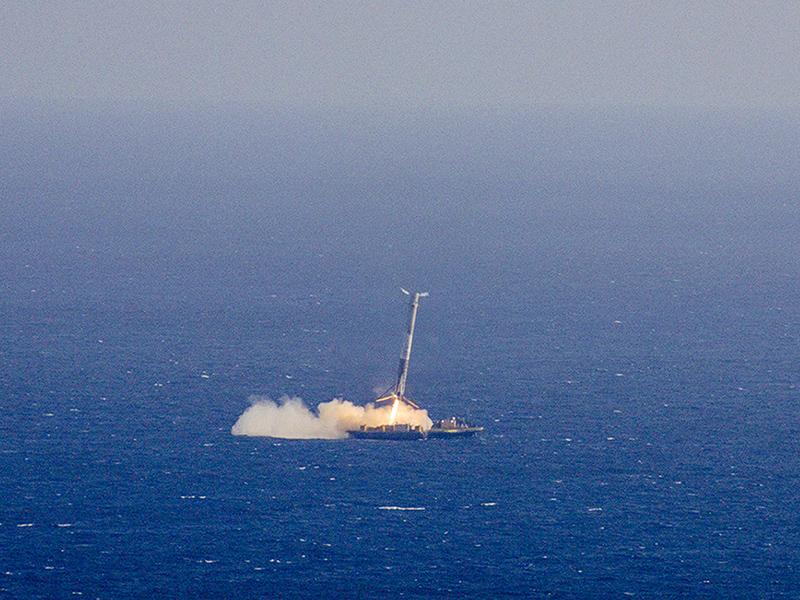In December, SpaceX landed its Falcon 9 rocket upright after it had traveled to space, marking a leap forward in the development of re-usable rockets.
Amazon and SpaceX itself had previously landed re-usable rockets that descended from sub-orbital space, but the December landing was a first for a rocket meant to deliver cargo and satellites into orbit, and none as flew as far into the stratosphere as the Falcon 9.
Now, SpaceX plans to repeat this feat on Jan. 17th, except this time the Falcon 9 is to land on a naval drone ship in the Pacific Ocean instead of a launchpad on solid ground.
The rocket will launch from Vandenberg Air Force Base in California, carrying a NASA’s Jason-3 satellite that will be deployed to monitor weather patterns on the ocean’s surface, NBC reports.
The Jan 17. launch won’t be the first time SpaceX has tried to land a rocket at sea. The company made two failed attempt to land the Falcon 9 rocket on a barge in the Atlantic in January and April of last year, with the latter caught on tape.
https://www.youtube.com/watch?v=BhMSzC1crr0





